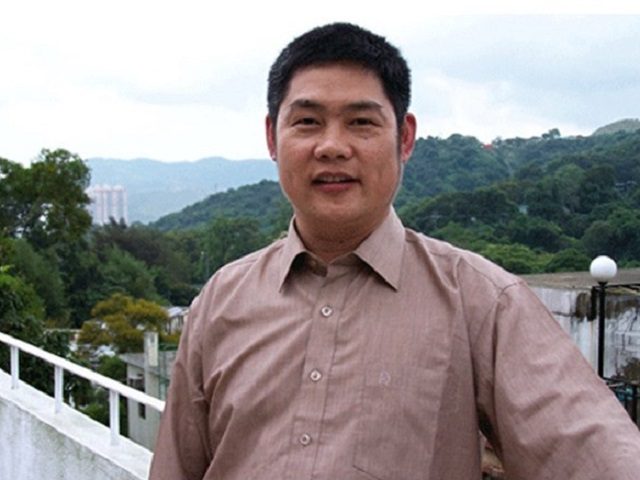In a rare move, the Vatican expressed its displeasure with the Chinese government Monday for the recent disappearance of Bishop Peter Shao Zhumin of Wenzhou.
Papal spokesman Greg Burke said that the Vatican is observing with “grave concern” the situation of Bishop Shao, who was “forcibly removed from his episcopal see some time ago.”
“The diocesan Catholic community and his relatives have no news or reasons for his removal, nor do they know where he is being held,” Burke said in a statement.
Pope Francis appointed Shao to his post in Wenzhou last September, an eastern city in the Zhejiang province with a large Christian community. Chinese authorities never recognized Shao’s appointment by the Vatican, insisting that they alone have the authority to appoint bishops.
Since 2014, the Communist Party has targeted Wenzhou in its brutal cross-removal program where authorities have removed more than 2,000 church crosses since the beginning of the operation. The crusade to eradicate the iconic Christian symbol from China’s landscape has included the demolition of crosses and churches as well as beatings and arrests when Christians have attempted to resist.
The government euphemistically titled the campaign a “beautification” program, often recurring to trumped up charges that church structures are illegally constructed in order to justify the destruction of crosses.
Last week, Asianews reported that Shao’s disappearance was “part of an attempt to persuade him to join the Chinese Patriotic Catholic Association so that he can be under its control.” The Communist-controlled Chinese Catholic Patriotic Association has structures parallel to those of the underground Catholic Church, which is not recognized by the state.
In its statement, the Vatican linked the mysterious disappearance of the bishop with “other similar episodes” that “unfortunately do not facilitate ways of understanding,” meaning that they may undermine efforts toward a diplomatic thaw between Communist China and the Holy See.
Burke conveyed the Vatican’s profound sadness over the event while expressing “the hope that Bishop Peter Shao Zhumin may return as soon as possible to the diocese and that he can be assured the possibility of serenely exercising his episcopal ministry.”
Last week, Germany’s ambassador to China said the bishop appears to have been forced by Chinese authorities to move to unknown locations four times over the past year. The diplomat called for restoration of the bishop’s “full freedom of movement.”
Ever since 1958, the Catholic Church in China has been split into underground and open communities with the latter going by the title of the Patriotic Catholic Association under immediate control of the Communist party. A Vatican document of 1988 barred Roman Catholics from participating in the sacraments of the Patriotic Church, since the association “had broken all relationships with the pope” and would be “under the direct control of the government.”
The regime of President Xi Jinping has asserted ever greater state control over religious bodies, with the unintended side effect that more and more Christians are opting out of the official, state-recognized church and heading underground.
China has an estimated 12 million Catholics. Of these, some six million Catholics have refused to join churches recognized by the Communist party and have chosen to worship in illegal “house churches,” where they can remain loyal to the Vatican.
The Chinese Communist party has proclaimed the independence of the nationalized Catholic Church from Rome, insisting that the church adhere to a program of “self-governance.” In a statement released after last December’s National Congress of Chinese Catholic Representatives in Beijing, participants reasserted the autonomy of the Chinese Catholic Church.
“Sticking to the principle of independence and self-governance as well as a system of national congresses embodies the self-esteem and confidence of the Catholic Church in China. They are the foundation of the church’s existence,” the statement read.
Calling for local church “autonomy,” Beijing has sought greater control over the Catholic Church in China, insisting that bishops be named by the local Chinese Catholic community under the auspices of the Communist Party.
It has also refused to acknowledge the authority of the Pope in ecclesiastical decisions, claiming that as head of a foreign state, the Pope has no right to interfere in local matters.
Follow Thomas D. Williams on Twitter Follow @tdwilliamsrome.

COMMENTS
Please let us know if you're having issues with commenting.